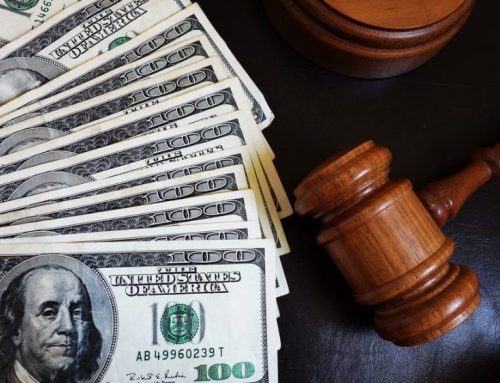Personal Injury Lawsuits; What to Expect and How to Proceed
If you have been injured in an accident or believe you may have a personal injury claim, you are probably wondering what to do, or what’s involved in the process. Familiarizing yourself with the many pieces of a personal injury lawsuit will help you prepare yourself for the days, weeks or months ahead as well as make sure you receive the compensation you deserve. This overview will help guide you through some of the more important pieces of your pending personal injury lawsuit.
Seek Medical Treatment
First and foremost you should get medical treatment. Your health is the most important thing to take care of, so go to the hospital or visit your doctor. Not only should you be taking care of yourself, but if you don’t seek medical help, an insurance adjuster or jury will assume you were never injured.
Take Notes
Once you’ve taken care of yourself, you should take notes. Don’t just rely on your memory of what happened. Personal Injury lawsuits can take time, an accurate account of how the accident happened as well as what affect it has had on you and your livelihood could prove invaluable ten or twelve months later.
Hire an Attorney
Often times people will try to settle a small personal injury claim on their own. While this may seem sufficient for very small claims, hiring an attorney is more often than not the correct course of action. Take the time to thoroughly research an attorney to represent you! You should be able to look online for personal injury attorneys in your area that have dealt with similar claims as your own. You wouldn’t go to a heart doctor to fix a broken leg, so don’t just use the attorney that got you out of your speeding ticket to represent you in your personal injury claim. Once you’ve narrowed your search for an attorney or law firm, make appointments to see and interview them. With such a task ahead, you’ll want to make sure you are comfortable with and trust the attorney that is going to represent you. Be sure to provide documentation of what happened as well as any medical treatment you’ve had to date. You’re attorney will need to review everything about the case to see, if in their opinion, you have a valid claim.
Continue Medical Care
If you were seriously injured, you will likely need additional treatment after your first visit with a doctor. If you don’t have insurance, ask your doctor or attorney to recommend a provider that will treat you on a lien basis. This means that your healthcare provider will treat you now and collect any payment for their services once your case settles. There are hundreds of providers nationwide that will treat you on a lien basis and for those that don’t, many work with companies like MedChex that will pre-fund your care. These companies will pay your medical bills on your behalf and collect their money later from the proceeds from your case. Utilizing healthcare providers that treat on a lien basis or working with pre-funding companies like MedChex will make sure you get the care you need while also helping your attorney prove the validity of your case. Once you’ve ended your treatment you are at a point of maximum medical improvement (MMI). At this point your attorney should now know how much your case is worth. Depending on the severity of your injury, it could take month or years to reach MMI.
Attorney Makes a Demand or Files a Lawsuit
Many personal injury cases will settle without ever going to trail. If your attorney thinks the case can settle they will make a demand with the attorney or insurance company representing the defendant. Otherwise, your attorney will file a lawsuit. The time frame as to when your attorney makes a demand can vary. If you’re financially able to wait until you can reach MMI, it can greatly increase the value of your case. However, many times personal injury victims are out of work due to their injury. If this is the case you and your attorney may decide to make a demand or file prior to reaching MMI.
Although filing early may help you receive compensation faster, you may be short changing your case. Knowing exactly what damages you’ve incurred up until the point you reach MMI is the only way for your legal team to know exactly what your case is worth. If you’re in need of immediate cash to cover living expenses or pay bills, you can look into applying for a cash advance. Glofin is one such cash advance company. When you apply for a cash advance they will speak with your attorney to underwrite the current value of your case and offer you a portion of your expected settlement upfront. This allows you the cash you need to go about living your life while you wait until you reach your MMI to maximize the value of your case. Once your case settles your attorney will pay the cash advance loan out of the proceeds from your case.
Discovery Process
The discovery process is where the legal party for the defense looks at the claims filed by the plaintiff. They will exchange questions and documents as well as take depositions of from the witnesses in the case.
Mediation and Negotiation
Once the discovery phase has been completed, attorneys from both sides will begin to discuss a settlement. Often times the case can be settled amongst the attorneys without any further due course. If a settlement can’t be reached, both sides will enter into mediation. During mediation the clients and attorneys will meet with a mediator to try and settle the case.
Trial
Trial is the final step in the lawsuit if a settlement is not reached through negotiation or mediation. The courts will schedule a date for your trial, but often times this date can be rescheduled multiple times due to conflicts within the court system or the judge’s schedule. Once your trial starts, it can be resolved in as little as a couple of hours or last weeks or longer depending on the case.
During the trial a judge or jury will examine the evidence presented by both attorneys to decide if there is a “preponderance of evidence” that the defendant should be held responsible for your injuries. Once both legal teams have completed their arguments, the next step towards a verdict is jury instruction. This is where the judge will give the jury a set of legal standards to decide whether or not the defendant should be held accountable.
Deliberation and Verdict
Finally the jurors will meet as a group to discuss the case in a process called deliberation. Deliberation is the first opportunity for the jury to discuss the case. Deliberation can last anywhere from hours to weeks. Most states require that a jury in a personal injury case be unanimous in finding for the plaintiff or the defendant, though some states allow for verdicts based on a majority vote. If the jury is unable to reach a verdict and finds itself at a standstill, or hung jury, the judge can declare a mistrial. At his point case may be dismissed or the trial may start over again with a new jury. If the jury rules in your favor however, they will then need to decide how much compensation you will receive from the defendant. They will look at medical bills, lost earnings, pain and suffering or other factors depending on your particular case.
Disbursement of Funds
Generally compensation will be paid to the victim within a month of the verdict or settlement from the case.



